The Art Of Comic Book Collecting: Tips And Tricks For Beginners

Comic books have a rich and fascinating history that dates back to the early 20th century. The first comic book, “Famous Funnies,” was published in 1933 and featured reprints of newspaper comic strips.
Since then, comic books have evolved into a unique form of storytelling, combining captivating narratives with stunning artwork.
So, why do people collect comic books?
For many, it’s a way to relive childhood memories and connect with their favourite characters. Others are drawn to the artistry and craftsmanship that goes into creating these visual masterpieces.
Additionally, comic book collecting can be a lucrative investment, as certain issues can appreciate significantly in value over time.
Whatever the reason, comic book collecting has become a popular hobby worldwide.
Summary
- Comic book collecting can be a fun and rewarding hobby for beginners.
- Understanding the value of comic books is important when choosing which ones to collect.
- Focusing on a specific genre, publisher, or character can help narrow down your collection.
- Building your collection can be done through various sources, such as comic book stores and online marketplaces.
- Protecting your investment through proper storage and preservation is crucial for maintaining the condition of your comics.
Understanding The Value Of Comic Books
The value of a comic book is influenced by several factors.
First and foremost is the issue’s rarity. Limited print runs or issues featuring first appearances of iconic characters tend to be more valuable.
The condition of the comic book also plays a crucial role in determining its worth. A well-preserved, high-grade copy will command a higher price than one with significant wear and tear.
To determine the value of a comic book, collectors often refer to price guides or consult with experts in the field.
These resources provide information on recent sales and market trends, helping collectors make informed decisions about buying or selling their comics.
It’s important to note that while price guides can be helpful, they should be used as a general reference rather than an absolute indicator of value.
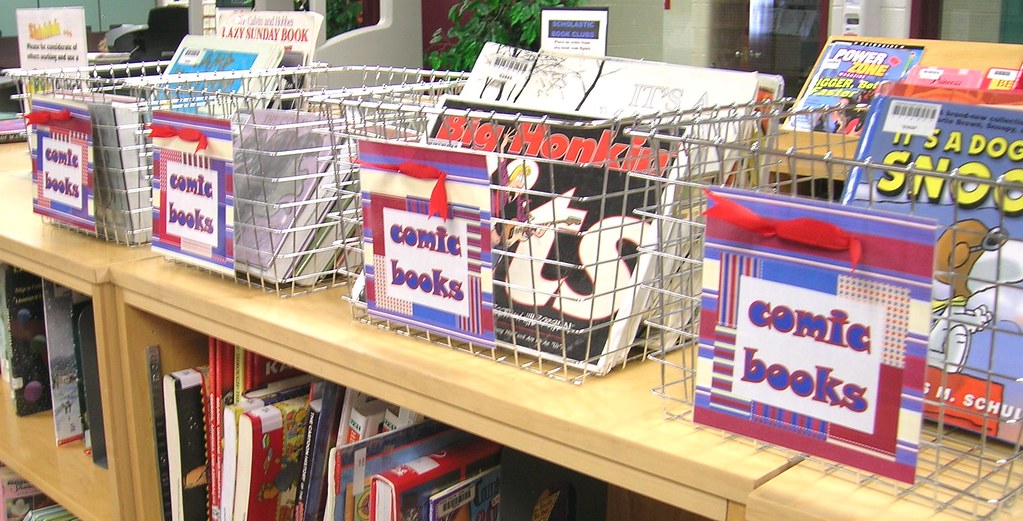
Comic Book ‘Ages’
Comic books are traditionally categorized into several “ages” that mark distinct periods in their evolution.
- The “Golden Age” (1938-1956) heralded the dawn of superheroes, with Superman debuting in Action Comics #1. This era set the foundation for the genre.
- The “Silver Age” (1956-1970), was when a resurgence of superhero popularity occurred, led by the reinvention of characters like the Flash and the introduction of Spider-Man.
- The “Bronze Age” (1970-1985) introduced a darker, more complex narrative style, addressing social issues with characters that were more relatable and flawed.
- The “Modern Age” (1985-present) continues to redefine and expand the boundaries of the medium with sophisticated storytelling and an embrace of diverse voices and genres.
Each age reflects broader societal changes and technological advancements, influencing the styles, themes, and artistic approaches within the comic book industry.
Choosing Your Focus: Genre, Publisher, Or Character
Comic books come in various genres, catering to different interests and tastes. From superhero stories to horror, science fiction to romance, there is something for everyone.
Choosing a genre that resonates with you can enhance your collecting experience and make it more enjoyable.
In addition to genres, comic book collectors often focus on specific publishers. Marvel and DC Comics are two of the most well-known publishers, with a vast array of iconic characters and storylines.
However, there are numerous independent publishers that produce exceptional comics worth exploring.
Another approach to collecting is to focus on specific characters. Characters like Superman, Batman, Spider-Man, and Wonder Woman have become cultural icons, with countless comics dedicated to their adventures.
Collecting comics featuring your favourite character allows you to delve deeper into their mythology and explore different interpretations.
Building Your Collection: Where To Find Comics
| Source | Availability | Cost | Format |
|---|---|---|---|
| Local comic book stores | Physical | Varies | Single issues, trade paperbacks, hardcovers |
| Online retailers | Physical and digital | Varies | Single issues, trade paperbacks, hardcovers, digital comics |
| Libraries | Physical and digital | Free | Single issues, trade paperbacks, digital comics |
| Second-hand bookstores | Physical | Varies | Single issues, trade paperbacks, hardcovers |
| Comic book conventions | Physical | Varies | Single issues, trade paperbacks, hardcovers, collectibles |
There are several avenues for buying comic books to build your collection.
Local comic book stores are a great place to start. These stores often have a wide selection of new releases, back issues, and collectibles.
Additionally, comic book store owners are usually knowledgeable about the industry and can provide valuable insights and recommendations.
Online marketplaces have also become popular platforms for buying and selling comic books.
- Forums like the CGC Forums are great places to get great deals
- There are many Facebook groups where you can buy swap and sell comics
Websites like eBay, Etsy, and ComicConnect (to name a few) offer a vast selection of comics from various sellers worldwide.
EBAY: eBay is a great place to snag a bargain at auction. The prices are sometimes unpredictable when it comes to comic books, but other times, you can find hidden gems. The link below will take you to the Silver age comic books on eBay right now.

ETSY: Etsy probably isn’t your first choice for comic books but I can tell you that if you’re not checking in there regularly, you could be missing out on some gems. To see what Etsy has available now, click on the link below.

Also, If you want to save a bit of cash and pre-order your comics online months before they come out, then you can do that too.
There are numerous online businesses that do this but the one I recommend because I’ve used them for years myself is TFAW (Things From Another World).
By pre ordering, there’s always a change that you’ll snag a nice first appearance and if you’re a reader? You’ll get up to 30% off by ordering early. It’s a win/win!
Remember though, it’s essential to research sellers’ reputations and carefully examine item descriptions and photos before making a purchase.
If you’re looking for hidden gems or bargain finds, garage sales and flea markets can be treasure troves.
While it may require take some patience and persistence, stumbling upon rare or undervalued comics at these venues can be incredibly rewarding.
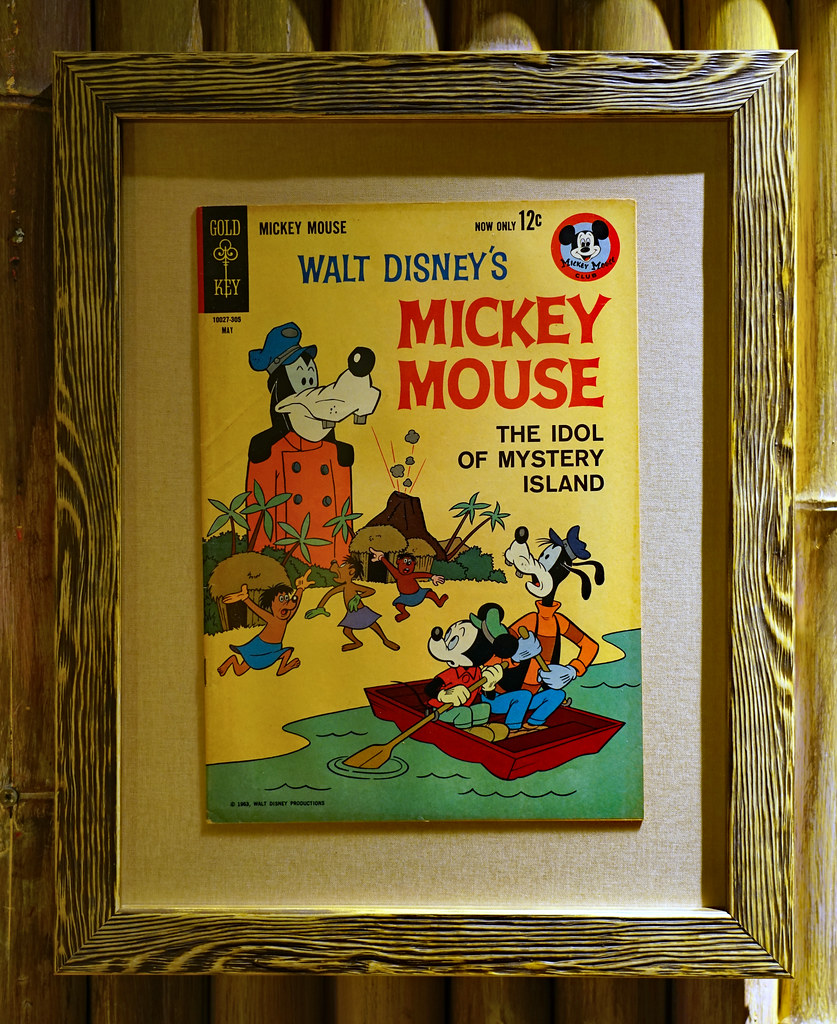
Grading Your Comics: Understanding The Condition Scale
Comic book condition is a crucial factor in determining its value.
The condition of a comic is typically graded on a scale from Poor (P) to Mint (Mint). The higher the grade, the better the condition of the comic.
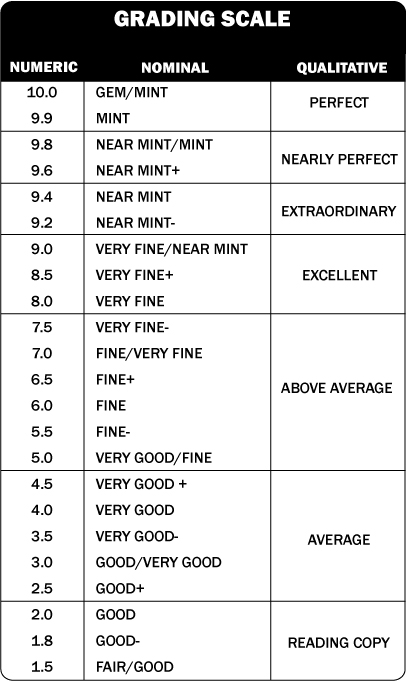
The importance of comic book condition lies in its impact on readability, aesthetics, and preservation.
A comic in poor condition may have missing pages, tears, or heavy creases that detract from the overall experience – but there are exceptions. If you’ve got an Action #1 in poor condition, you’ve still got an incredible piece of history that will command a high price.
On the other hand, a comic in mint condition appears as if it just came off the printing press, with no visible flaws.
Professional grading services, such as the Certified Guaranty Company (CGC) and CCS, provide impartial assessments of comic book condition.
These services encapsulate the comic in a protective case and assign it a grade based on industry standards.
Graded comics often command higher prices due to the added assurance of their condition.
CGC Comic Book Grading
CGC, or Certified Guaranty Company, is a leading comic book grading service that assesses the condition and authenticity of comic books.
CGC comic book grading provides an impartial evaluation of a comic’s condition, assigning a numerical grade from 0.5 (poor) to 10.0 (gem mint) based on factors such as page quality, cover wear, restoration, and any physical defects.
Once graded, comics are encapsulated in a tamper-evident, protective plastic holder with a label displaying the grade and relevant details.
This grading not only helps in preserving the comic but also standardises its value in the collector’s market.
For collectors and investors, CGC grading can significantly enhance the value of a comic book, making it a critical tool for those looking to buy or sell with confidence.
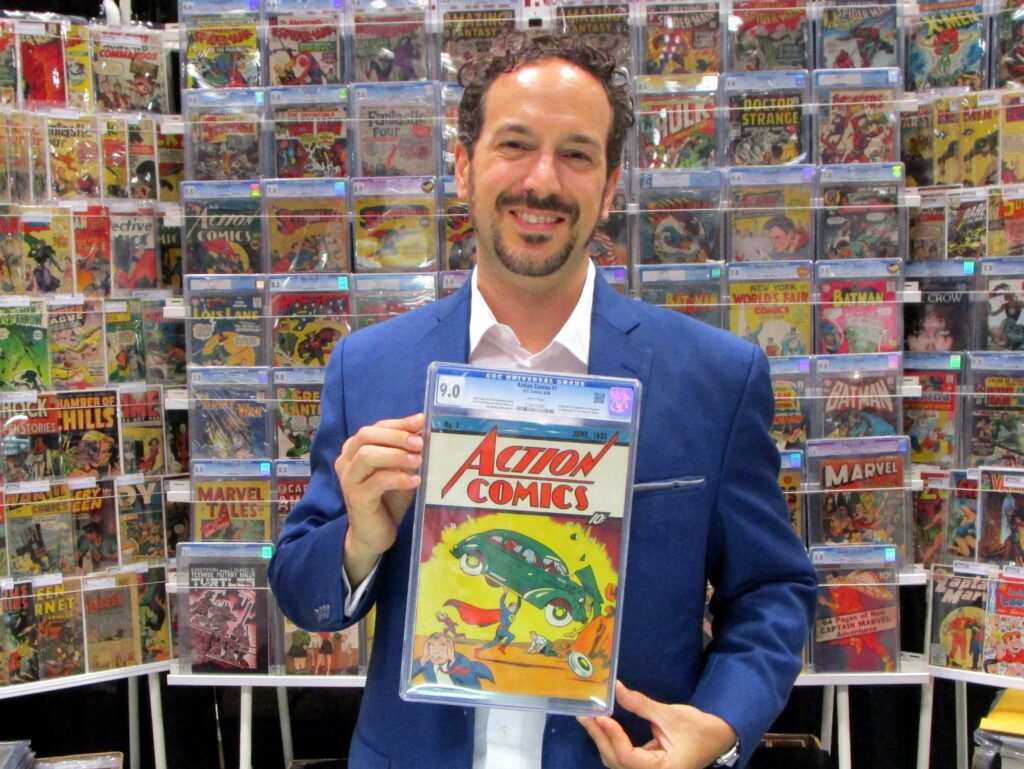
Protecting Your Investment: Storage And Preservation
Proper storage and preservation are essential for maintaining the value and longevity of your comic book collection.
Exposure to sunlight, moisture, and extreme temperatures can cause irreversible damage to comics. Therefore, it’s crucial to store them in a cool, dry, and dark environment.
Comic book bags and boards are commonly used for individual comic book protection.
Bags made from acid-free materials prevent yellowing and deterioration, while boards provide rigidity and support.
Placing comics upright in sturdy boxes or comic book storage cabinets helps prevent bending or warping.
To further protect your investment, consider investing in archival-quality storage solutions.
Acid-free boxes, sleeves, and dividers provide an extra layer of protection against environmental factors that can degrade comics over time.
Organising Your Collection
Organising your comic book collection effectively can enhance both the enjoyment and value of your hobby.
Start by cataloging each comic by title, issue number, and condition.
Utilise software like CLZ Comics or a simple spreadsheet to keep a digital record that’s easy to update and search.
Group your comics either by publisher, series, or storyline to make finding specific issues easier.
Additionally, creating a designated space for your collection, whether it’s a specific bookshelf or display case, will not only keep your comics safe but also showcase your collection proudly.
Regular audits of your collection can help in maintaining organisation and ensuring that each comic maintains its condition and value over time.
CLZ Cataloging App
CLZ Comics is a popular app designed to help comic book collectors catalog and organise their collections with ease.
With this app, users can quickly add comics to their database by scanning barcodes or searching by series, providing detailed information on each issue including cover art, plot summaries, and more.
The app also allows collectors to track which issues they own, which ones they’re looking to purchase, and their current condition.
Key features include cloud syncing, which enables users to access their collections from any device, and robust sorting and filtering tools, making it easier to manage large collections.
CLZ Comics is highly valued among enthusiasts for its user-friendly interface and comprehensive features that enhance the collecting experience.
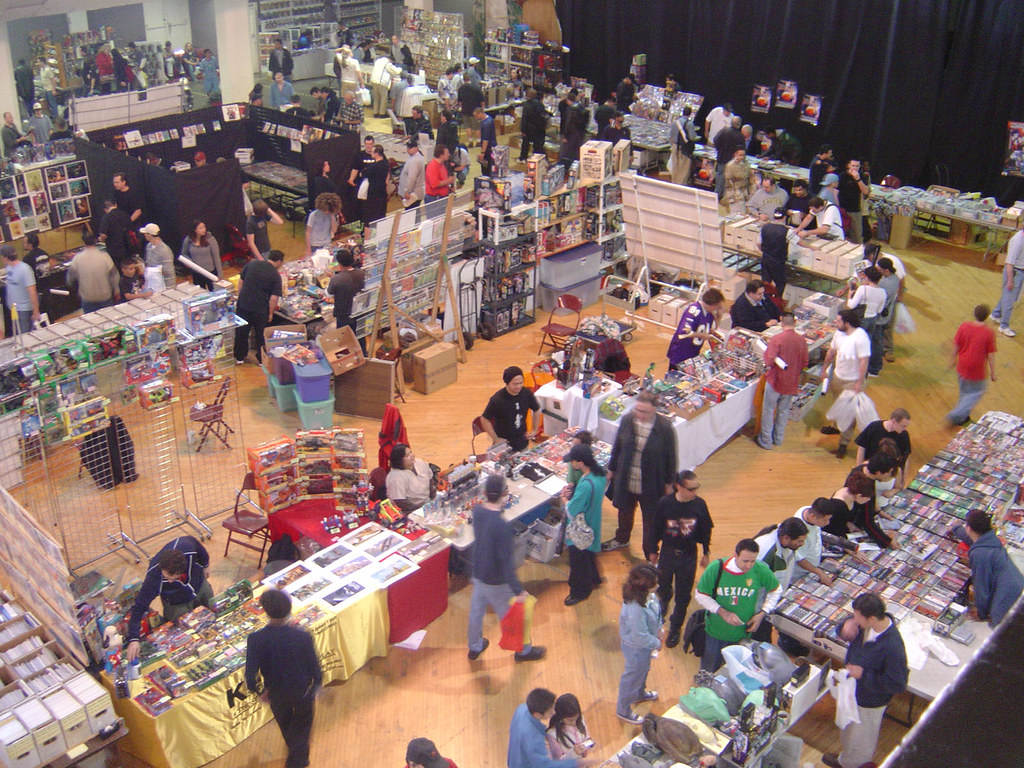
Networking With Other Collectors: Joining A Community
Joining a comic book collecting community offers numerous benefits for enthusiasts.
It provides an opportunity to connect with like-minded individuals who share your passion for comics. Whether online or in-person, these communities offer a platform for discussing favourite issues, sharing recommendations, and even trading or selling comics.
To find a community that suits your interests, explore online forums, social media groups, or local comic book clubs. Here are a few that I personally use and that are well worth considering:
- CGC Chat Forums. The CGC Chat Forums are an amazing resource. Whether you like collecting modern comic books or books from the golden age, there’s something there for you. Some of the members on here have been participating for years and they know their stuff. It’s a great place to buy and sell too.
- The Facebook group CGC comic fans has close to 40k members and is an extremely active group where you can ask questions and show of your collection
- r/comicbooks on Reddit is a massive group and, like the groups above, is a incredible resource worth exploring. There’s some knowledgable users here and there’s not much they don’t know.
These are just a small sample of the online groups available but in my humble opinion, they’re great starting point. The one I would insist on joining is the CGC chat forums based on its wealth of knowledge.
Conventions
Attending conventions and comic book events is another excellent way to meet fellow collectors and expand your network.
Being part of a community not only enhances your collecting experience but also provides access to valuable insights and knowledge from seasoned collectors.
It’s a chance to learn about upcoming releases, discover hidden gems, and stay informed about industry trends.

Attending Comic Book Conventions: Tips For First-Timers
Comic book conventions are exciting events that bring together fans, creators, and industry professionals.
Attending a convention for the first time can be overwhelming, but with a few tips, you can make the most of the experience.
Firstly, plan ahead.
Research the convention schedule and make note of any panels, signings, or exclusive merchandise you want to check out. The CGC Forums are a good place to find out who is doing book signings and if they will be verified by CGC.
Arriving early allows you to beat the crowds and have a better chance of securing limited edition items.
Navigating a convention can be challenging due to the sheer size and number of attendees.
Familiarise yourself with the layout of the venue and create a schedule to ensure you don’t miss out on any must-see events. Comfortable footwear is essential as you’ll likely be doing a lot of walking.
Lastly, don’t forget to bring cash.
While many vendors accept card payments, having cash on hand can make transactions smoother and faster. Additionally, consider bringing a backpack or tote bag to carry your purchases and any freebies you may receive.
Investing In Key Issues: What To Look For In Rare Comics
For collectors interested in investing in comic books, understanding what makes a comic rare is crucial.
First appearances of iconic characters, significant storylines, or limited print runs often drive up the value of a comic book.
Key issues from popular series or events tend to appreciate in value over time.
For example, “Action Comics #1,” featuring the first appearance of Superman, is one of the most sought-after comics in existence. Similarly, “Amazing Fantasy #15,” which introduced Spider-Man to the world, is highly coveted by collectors.
It’s important to note that investing in comic books requires careful research and consideration.
While some issues may skyrocket in value, others may not appreciate as significantly. Collecting comics should primarily be driven by passion and enjoyment, with any potential financial gains considered a bonus.
If you collect what you love, you’ll never lose.
Building A Wish List: Tracking Down Elusive Comics
Creating a wish list is an excellent way to keep track of comics you’re eager to add to your collection.
Whether it’s a rare issue, a specific storyline, or a variant cover, having a wish list helps you stay focused and organised.
To track down elusive comics, utilise online resources such as comic book marketplaces, forums, and social media groups. Engaging with the comic book community can provide valuable leads and insights into where to find hard-to-find issues.
Additionally, attending conventions and local comic book events increases your chances of stumbling upon rare comics. Vendors often bring their most prized possessions to these events, offering collectors an opportunity to find hidden gems.
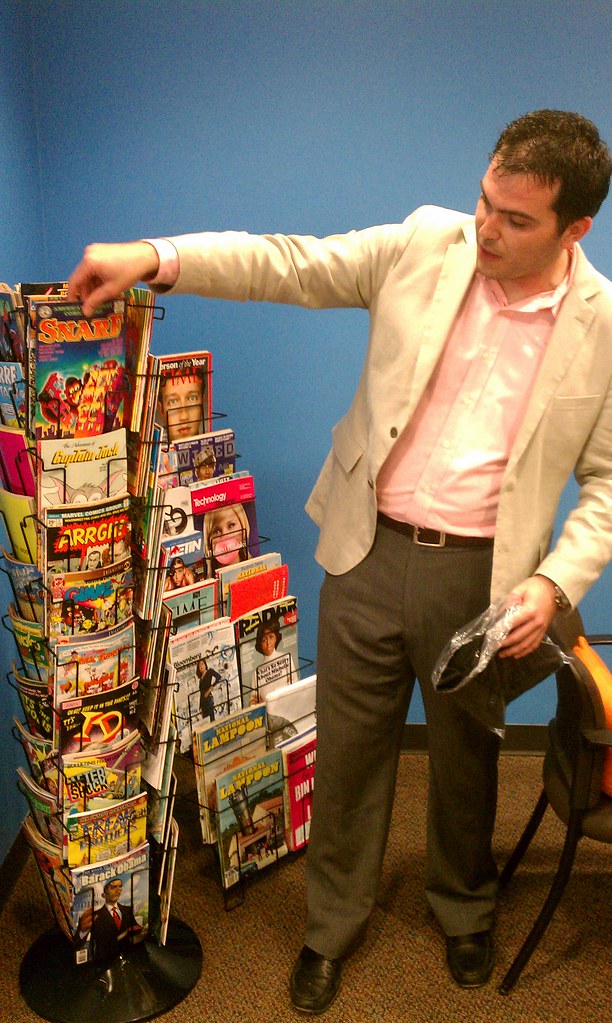
Displaying Your Collection: Creative Ideas For Showcasing Your Comics
Displaying your comic book collection allows you to showcase your favorite issues while adding a touch of personality to your space.
There are numerous creative ways to display comics, depending on your preferences and available space.
One popular method is framing individual comic book covers and hanging them on the wall. This not only protects the comics but also transforms them into unique pieces of art.
Another option is using comic book display frames or shelves to showcase multiple issues at once.
For those with limited wall space, consider using comic book storage boxes with clear lids that allow you to stack and view your collection easily.
These boxes can be placed on shelves or under tables, providing a neat and organized display.
DIY enthusiasts can explore creative projects such as building custom comic book display cases or incorporating comics into furniture pieces like coffee tables or bookshelves.
The possibilities are endless when it comes to displaying your collection in a way that reflects your personal style.
Selling Your Comics: Tips For Maximizing Profit
If you decide to sell some or all of your comic book collection, there are several tips to maximise your profit.
Firstly, research the current market value of your comics to ensure you’re pricing them competitively. Price guides, online marketplaces, and consulting with experts can help you determine a fair asking price.
When selling online, take high-quality photos of your comics and provide accurate descriptions.
Be transparent about any flaws or damage, as this builds trust with potential buyers. Packaging your comics securely and shipping them promptly also contributes to a positive selling experience.
Consider selling your comics through multiple channels to reach a broader audience.
Online marketplaces like eBay and ComicConnect offer global exposure, while local comic book stores may be interested in purchasing collections directly.
Lastly, be open to negotiation. Some buyers may want to haggle or make offers below your asking price. Assess each offer carefully and be willing to negotiate if it aligns with your expectations.

Avoiding Scams And Counterfeits: Red Flags To Watch Out For
Unfortunately, scams and counterfeits exist in the comic book collecting world.
It’s essential to be vigilant and educate yourself on common red flags to avoid falling victim to fraudulent practices.
One common scam is the sale of counterfeit comics. Counterfeiters often target high-value issues, creating replicas that can be challenging to distinguish from the genuine article.
Researching reputable sellers, examining photos closely, and consulting with experts can help you identify potential counterfeits.
Another scam involves sellers misrepresenting the condition of their comics. Photos may be strategically taken to hide flaws or damage, leading buyers to believe they are purchasing a higher-grade comic than what they receive.
Requesting additional photos or asking specific questions about condition can help uncover any discrepancies.
Be cautious when purchasing comics from unfamiliar online sellers or at conventions from individuals without established reputations. Researching seller feedback and reviews can provide insights into their credibility and reliability.
Conclusion: The Art Of Comic Book Collecting
Comic book collecting is a hobby that combines storytelling, art appreciation, and investment potential.
By understanding the history, value, and various aspects of comic book collecting, enthusiasts can start on a rewarding journey.
Remember to choose a focus that resonates with your interests, whether it’s a specific genre, publisher, or character.
Building your collection requires exploring different avenues such as local comic book stores, online marketplaces, and even garage sales. G
rading and protecting your comics ensure their long-term preservation and value.
Networking with other collectors through communities and attending conventions enhances the overall experience. Investing in key issues can be exciting but requires careful research and consideration.
Creating a wish list helps track down elusive comics, while displaying your collection allows you to showcase your passion creatively.
If you decide to sell your comics, research market values, provide accurate descriptions, and consider multiple selling channels. Lastly, stay vigilant against scams and counterfeits by educating yourself on red flags and relying on reputable sources.
Whether you’re just starting or have been collecting for years, comic book collecting offers endless opportunities for exploration, discovery, and enjoyment.
So, embrace the art of comic book collecting and let your passion guide you on this thrilling journey.

FAQs
What Is Comic Book Collecting?
Comic book collecting is the hobby of collecting and preserving comic books. It involves acquiring, cataloguing, and storing comic books in a way that preserves their condition and value.
What Are Some Tips For Beginners In Comic Book Collecting?
Some tips for beginners in comic book collecting include starting with a specific genre or character, researching the value of comics before purchasing, storing comics in a cool and dry place, and investing in protective sleeves and backing boards.
What Are Some Popular Comic Book Genres?
Some popular comic book genres include superhero, science fiction, horror, fantasy, and crime.
What Factors Affect The Value Of A Comic Book?
The value of a comic book is affected by factors such as its age, rarity, condition, and popularity. Comics that are in good condition and feature popular characters or storylines are typically more valuable.
How Can I Determine The Value Of A Comic Book?
You can determine the value of a comic book by researching its condition, rarity, and popularity. There are also online resources and price guides available that can help you determine the value of a comic book.
What Are Some Common Mistakes To Avoid In Comic Book Collecting?
Some common mistakes to avoid in comic book collecting include mishandling or damaging comics, overpaying for comics, and not properly storing or protecting comics. It is also important to avoid buying counterfeit or fake comics.
Looking For Something Completely Different?
Explore a world of unique and bizarre collectibles at Collectorizing.com.
Our platform is the perfect place to discover rare items that you won’t find anywhere else.
Connect with a community of enthusiasts who share your passion for the extraordinary and dive into a hobby that’s anything but ordinary. Visit us today and check out som unusual treasures!
Some of the links in this post are affiliate links, which means if you click through and make a purchase, I’ll earn a little something at no extra cost to you. It’s a cool way for you to find awesome stuff while supporting the blog. I promise I only shout out products and services that I genuinely love and think you will too!


